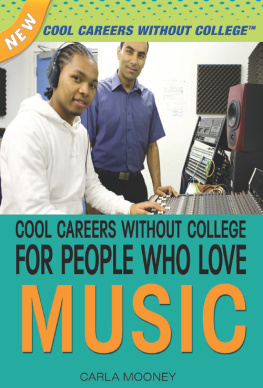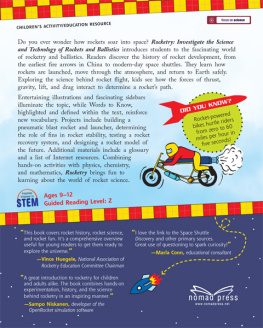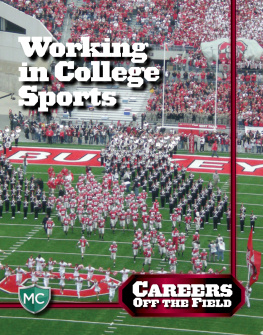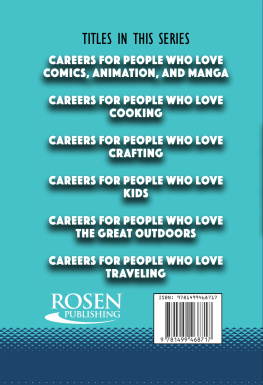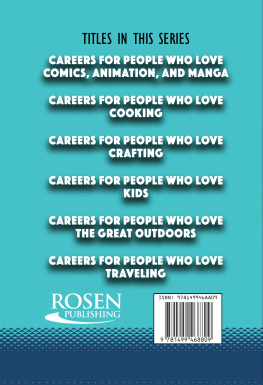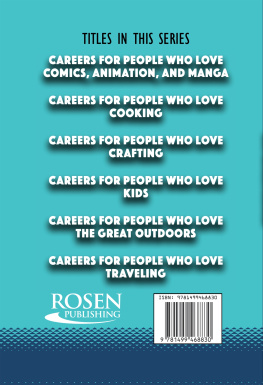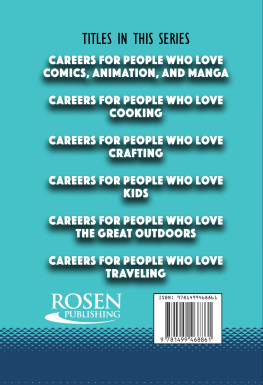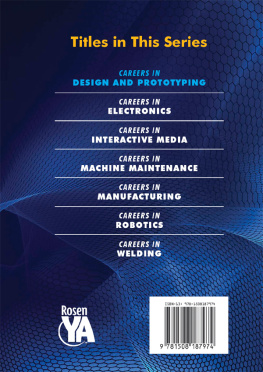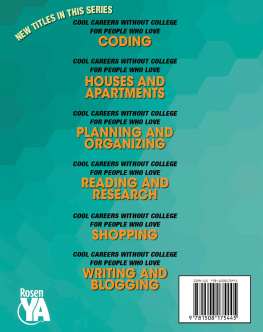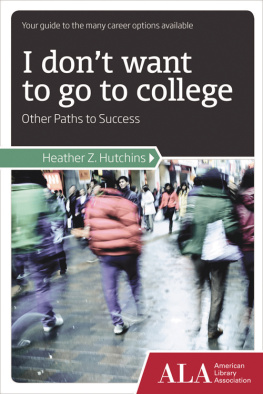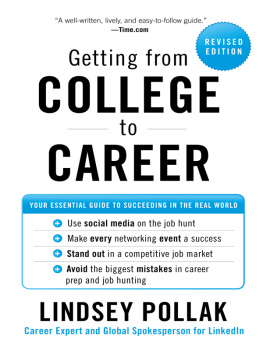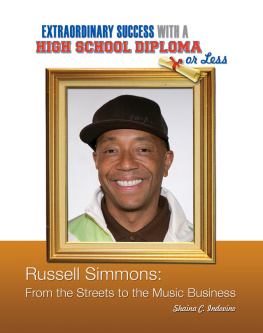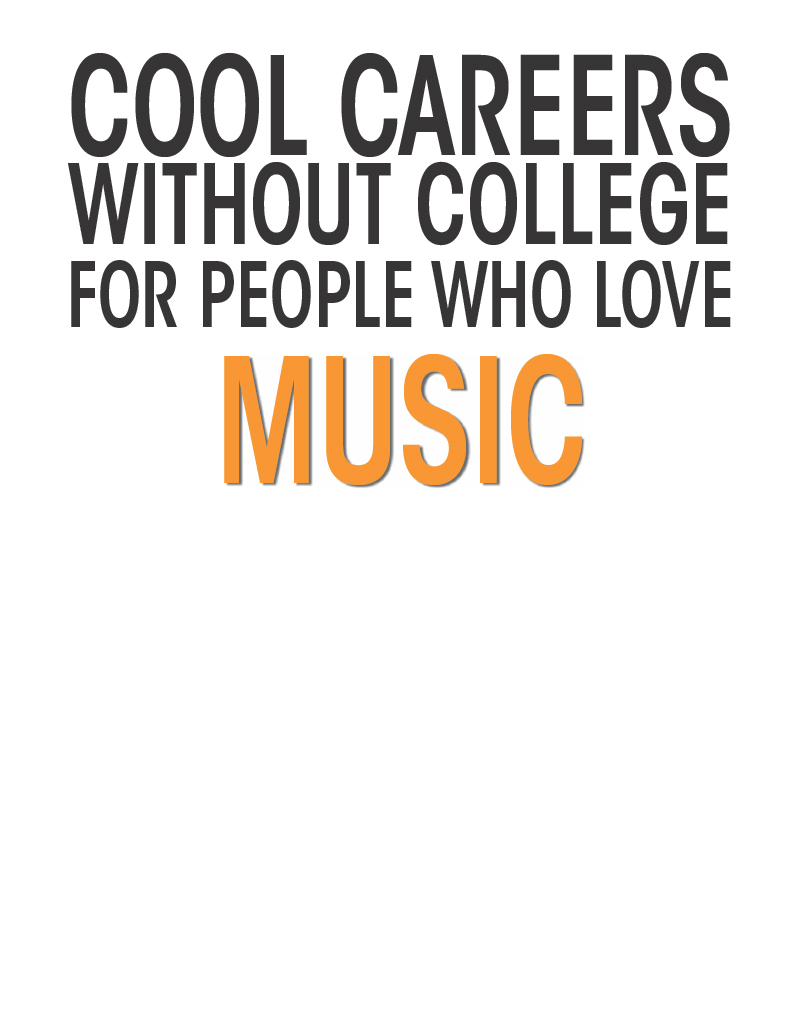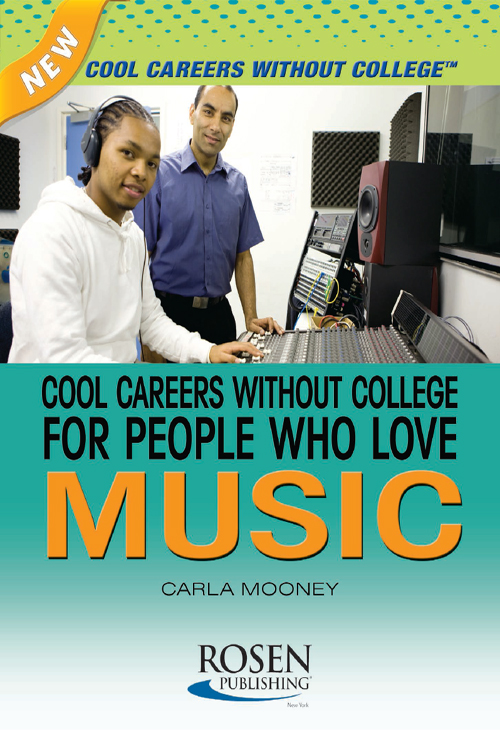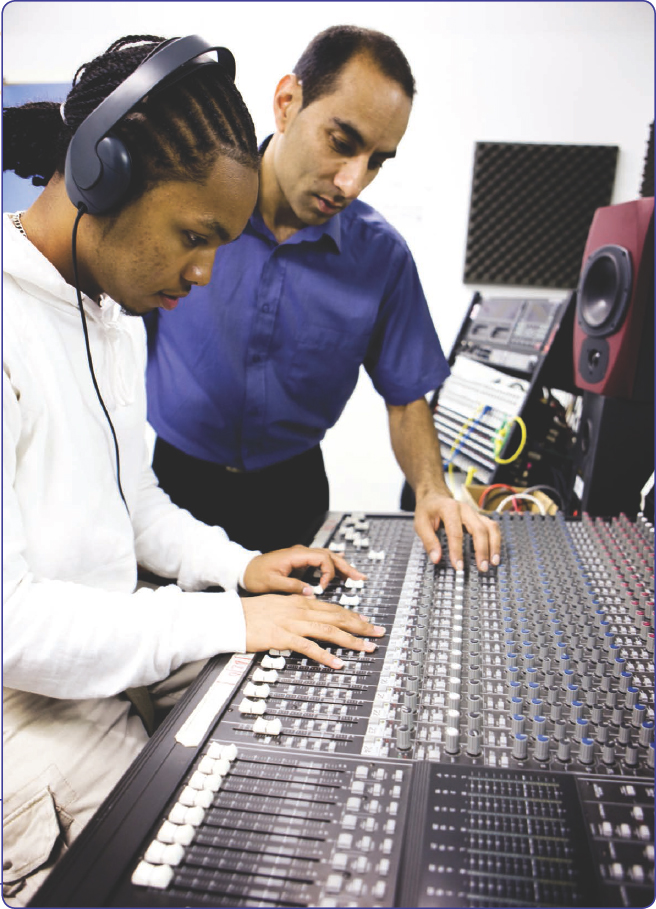Published in 2014 by The Rosen Publishing Group, Inc. 29 East 21st Street, New York, NY 10010
Copyright 2014 by The Rosen Publishing Group, Inc.
First Edition
All rights reserved. No part of this book may be reproduced in any form without permission in writing from the publisher, except by a reviewer.
Library of Congress Cataloging-in-Publication Data
Mooney, Carla, 1970
Cool careers without college for people who love music/Carla Mooney.First edition.
pages; cm(New cool careers without college)
Includes bibliographical references and index.
ISBN 978-1-4777-1819-3 (library binding)
1. MusicVocational guidanceJuvenile literature. I. Title.
ML3928.M65 2013
780.23dc23
2013012398
Manufactured in the United States of America
CPSIA Compliance Information: Batch #W14YA: For further information, contact Rosen Publishing, New York, New York, at 1-800-237-9932. A portion of the material in this book has been derived from Cool Careers Without College for Music Lovers by Kerry Hinton.
CONTENTS
INTRODUCTION
H ave you ever thought about music as a career? If your answer is yes, then this is for you. This book is all about careers in music. It takes all types of people to make music and get it played live and on the radio. Take a look at some of these career options you might just discover that you want to take the leap into the music industry.
None of the jobs that you will find listed here require a college degree, but they all demand what most jobs do: dedication and patience to see results. You do not even need to know how to play a musical instrument for the majority of these jobs!
You will read about twelve different professions that are associated with music in various ways. Each entry describes a job, the training you may need, and lots of resources for more information. Many of the jobs we discuss can be merged with another job or worked as a second job while you gain experience. You may have never even heard of some of these jobs. Go ahead, read, and find out. You might just discover several exciting career options that you hadnt even thought of before now.
A student learns the functions of sound recording equipment from his instructor. A career in sound engineering can lead to work in the music or movie industry.
CHAPTER 1
PRIVATE MUSIC TEACHER
A good music teacher can inspire a child to a life-long love of music and music-making. Music teachers teach students how to play an instrument. Youll give lessons to kids and adults alike, from brand-new beginners to more experienced musicians. While youll have to deal with some students who come to lessons because their parents force them, most private music students are eager to learn.
A DAY IN THE LIFE
Private music teachers can work in a variety of places. They may teach in their own home or travel to students homes. They may also give lessons at a music store, private studio, or similar location. Lessons can last anywhere from thirty minutes to about an hour and often take place once per week. A lesson may be one-on-one, with just the teacher and one student. Other times, lessons are taught in groups, where the teacher has a small group of students at the same time. Music teachers also work with a variety of students, with different ages, backgrounds, and experiences. Some students may be as young as four or five years old and are just beginning to learn how to hold an instrument and read music. Other students may have played an instrument for several years and are working on more challenging pieces of music. Older students may know how to play one instrument but want to learn how to play a second instrument. Because every student is different, music teachers should be flexible and patient. Making the lesson enjoyable is an important part of every music teachers job. To be successful, they should be able to relate well to students and have an encouraging manner.

At a weekly lesson, a student plays a song he has practiced at home for his teacher. The teacher discusses the music with the student and offers his suggestions for performing the piece.
INTERVIEW: EIGHT QUESTIONS WITH A MUSIC TEACHER
Fugi Sisca, Batavia Studios, Seven Fields, Pennsylvania
1. HOW LONG HAVE YOU WORKED AS A MUSIC TEACHER? I have worked as a music teacher for over ten years.
2. HOW DID YOU GET THIS JOB? My best friend saw an ad on Craigs List and called me immediately. I had been teaching independently out of my home.
3. DID YOU GO TO COLLEGE FOR THIS JOB? IF SO, WHAT DID YOU MAJOR IN? IF NOT, WHY WAS IT NOT NEEDED? I majored in communications and minored in music and psychology. I use all three in this job extensively. Technically, you do not need to have a degree to teach music.
4. WHAT IS THE BEST PART/UPSIDE OF YOUR JOB? The very best part is watching children learn and enjoy music. My favorite part is when a song that was difficult becomes easy with practice. I like to think that later on in life my students will have the ability to relax, de-stress, and enjoy playing their instrument.
5. WHAT IS THE WORST PART/DOWNSIDE OF YOUR JOB? By far the worst thing is when a student doesnt practice. You want them to have fun with it, but if they dont practice it becomes a drag for everyone involved.
6. WHAT IS A TYPICAL DAY LIKE? A typical day for me is a fouror five-hour shift in the evenings. I work part-time, and the hours are great. Typically, I teach back to back without a break. The main focus is reviewing the students assigned pieces that they practiced the previous week. I am always looking to see how I can help them improve their skills from where they are. Progress not perfection is my motto.
I teach piano, voice, flute, and beginner guitar. The bulk of my students are piano or voice students. The ages of the students vary from three years old to mature adults. I also have a few students who come to my home and we basically follow the same format.
7. WHAT WORK IS INVOLVED IN GETTING STUDENTS READY FOR RECITALS/COMPETITIONS? For recitals and competition, I like my students to be over prepared. I really put a lot of effort into making sure it is a positive experience for them. We go over the piece many times to make sure the student could practically play it in their sleep. That way if nerves kick in they will still be fluent in the piece. Oftentimes I also have them play their pieces on different pianos to experience the feel or sound of other instruments. We also play the piece in front of other teachers or students to have the experience of playing in front of others. If there is anything I can think of to help the student improve their performance or make the experience easier and more fun I definitely do it. It is very rewarding to see a student work that hard on a piece and then watch them perform it. It is definitely my favorite part of teaching.
8. ANYTHING ELSE WE SHOULD KNOW? Id also like to add that there are many careers in music, and if you have a passion for music you should definitely pursue it as a career. It is creative, fun, and not the least bit stressful. I personally know many people who have made a career in music. It may take some work to figure out what your niche is but that is true in any field. Please do not listen to people who tell you otherwise. It is a complete fallacy that you will never make a living at it.

